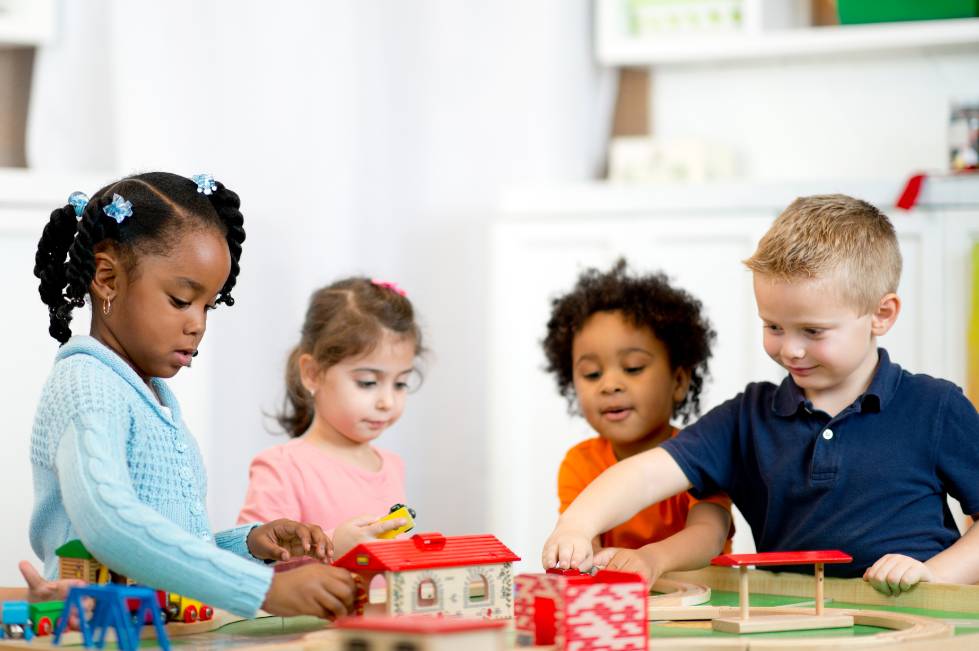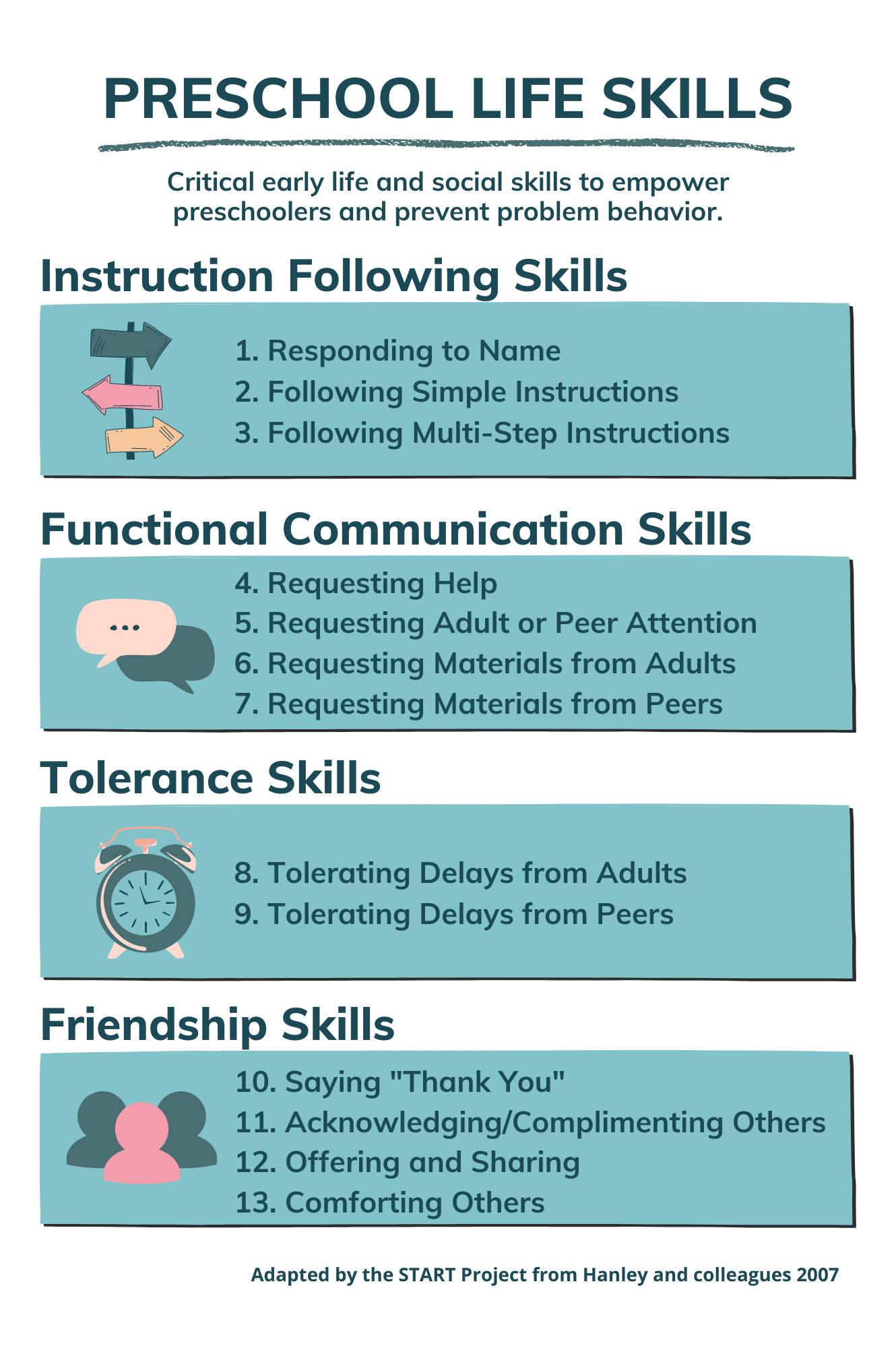Preschool Life Skills (PLS): Teaching Foundational Behaviors for School Success

This article originally appeared in START Connecting in September 2022.
Updated February 18, 2026.
Do your preschoolers share with other children? Do they consistently look when a teacher calls their name? What about asking for help or following directions? Many children need explicit instruction and multiple practice opportunities to learn these skills, especially as they prepare for kindergarten. To teach these skills and set up a successful classroom environment, it is useful to have a systematic program for teaching, modeling, practicing, and reinforcing these foundational skills.
Preschool Life Skills (PLS) is a research-based, supplemental curriculum that provides a set of tools to help teach important social and life skills for school success. The PLS program includes a set of lessons developed by Dr. Gregory Hanley and colleagues to increase skills in making requests, following directions, tolerating delay, and developing friendships. Several research studies demonstrate the effectiveness of the PLS program across various types of early childhood settings with increases in positive social behaviors and decreases in challenging behavior for children both with and without disabilities.
The PLS program is highly effective because it creates plenty of opportunities for children to practice and generalize skills. The START-ism “Independence and social competency only develop with opportunities” applies here. If we want socially competent, independent preschoolers, it requires intentional, systematic instruction. The research also shows that these skills follow children into their school years.
All the materials needed to teach PLS in your classroom can be found on the Preschool Life Skills website, including a description of the program, a questionnaire, lesson plans, data collection forms, practice scenarios, and additional supporting materials. Explore the site and try some lessons to see how it changes the culture of your early childhood classroom and the skills of your preschoolers (Hint: The lessons work with kindergarteners, too).
Written by: Amy Matthews, Ph.D., BCBA (Project Director) and Anna Mayotte (GVSU School Psychology Graduate Student)
Resources
- Preschool Life Skills (PLS) Website
- Behavioral Expectations for Early Childhood Classrooms (a complementary practice to PLS)

